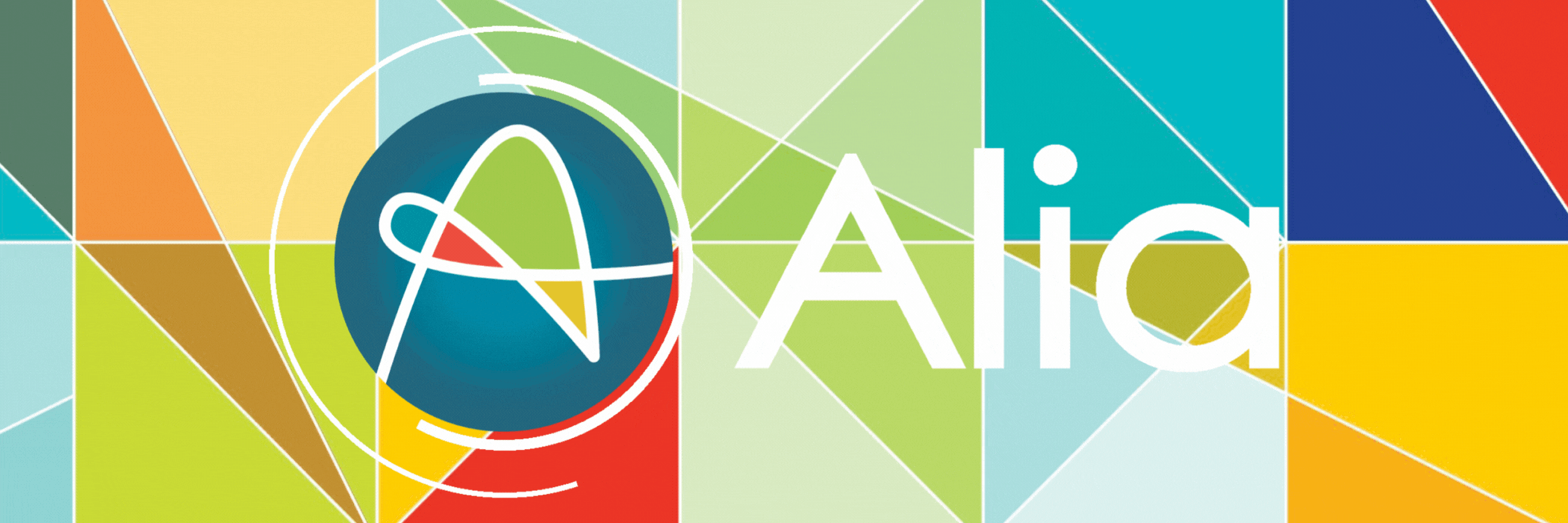
Ready, set, go.
It’s not Go, Set, Ready. It’s ready first.
The boost of support for co-designing new ways of work with impacted persons is such an incredible Bright Spot in child welfare. As a field, we are recognizing that we cannot develop solutions to family challenges without involving families. As a collective, we are believing more deeply that “those closest to the problems are closest to the solutions” (Glen E. Martin) and identifying more equitable ways to bring together the voices of those most impacted with those who (currently) hold significant power and resources to fuel solutions. Alia has engaged in co-design in child welfare since 2017 when we hosted Ten of Ten for Kids with 100 impacted persons and innovators, and we’ve learned a great deal in our subsequent co-designed transformation projects since then in the development of Dear Leaders, in our work with the State of New Jersey, and in Wisconsin.
In no way have Alia and our partners figured this out, and we continue to make mistakes and acknowledge that our learning has caused harm. We are working every day not to repeat those harms, and to help others also learn from the teachings gifted to us from those who have not only been harmed by the system but re-harmed in working to put an end to the practices of family surveillance and separation.
The primary thing we’ve learned is that you can’t just leap into co-design without adequately building trust in families and in communities, supporting their vulnerability to return to the table to design solutions to the impact of harm placed upon them. This cannot happen without preparing systems to understand that history of harm, our role in that harm, and without learning to humble ourselves to families and communities to prevent further harm.
It’s ready, set go. Get ready, so others don’t have to suffer when you aren’t—a lesson we continue to integrate and practice.
-Feb-28-2023-09-38-21-2091-PM-1.png?width=565&height=74&name=Copy%20of%202021%20A%20Year%20in%20Review%20(1200%20x%20500%20px)-Feb-28-2023-09-38-21-2091-PM-1.png)
Read Amelia's full article on our website.
Ethical Considerations for Working with
Lived Experts
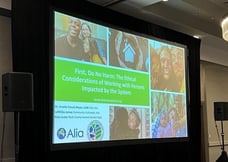 Earlier this month, we had the opportunity to elevate the Rock County Equity Project at the National Association of Counsel for Children’s 46th National Child Welfare Law Conference in Minneapolis.
Earlier this month, we had the opportunity to elevate the Rock County Equity Project at the National Association of Counsel for Children’s 46th National Child Welfare Law Conference in Minneapolis.
Our Community Cultivator, LaMikka James, and CEO, Amelia Franck Meyer, shared insights and learnings alongside Kate Luster, Director of the Rock County Human Services Department. Focused on the ethical considerations of working with people impacted by the system, they highlighted the need for professionals in the system to engage in the preparation work necessary to become a more trusted community partner.
The Pillars for Engaging Lived Experts resource was developed by leaders and lived experts as a starting point to help build the awareness and mindset shift needed to act in ethical ways.
Learn more about the Rock County Equity Project in the Idea Book: A New Future for Beloit Families, a co-created, mutually accountable, actionable plan from the perspective of Black families in Beloit, WI to minimize impact of CPS by creating a beloved community of support.

Trauma Effective Leadership Certificate
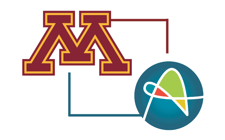 We are excited to partner again with the Center for Practice Transformation at the University of Minnesota School of Social Work for another Trauma Effective Leadership Certificate course.
We are excited to partner again with the Center for Practice Transformation at the University of Minnesota School of Social Work for another Trauma Effective Leadership Certificate course.
This small cohort, comprised of leaders from child welfare, human services, behavioral/mental health, law enforcement/corrections, health care, and education, will walk away with new trauma-effective leadership techniques, and increased awareness of the leader’s role in shaping culture to be safe in both conscious and unconscious practices. Space is limited! Learn more and register now through October 17!
UnSystem Toolkit: Foundations for Change
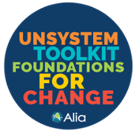 Available now is Alia's first-ever online learning series! The UnSystem Toolkit: Foundations for Change is a five module series, introducing UnSystem approaches that shift focus to the whole family, build family wellbeing, and support healthy child development.
Available now is Alia's first-ever online learning series! The UnSystem Toolkit: Foundations for Change is a five module series, introducing UnSystem approaches that shift focus to the whole family, build family wellbeing, and support healthy child development.
Is your agency interested in using this resource for new staff orientation, community and partner alignment, or staff development? Let's start the conversation!

Here are some ideas that got us thinking this month. Visit our website to read the full-length posts, and join us in the conversations online!
- Stuck on defining your “why?” You’re not alone! The Alia UnSystem Cohort spent three years getting crystal clear on why the child welfare system change needed to happen and why they believe it will work. The outcome was a Theory of Change worksheet, a tool to strengthen your work’s elevator pitch.
-
We are people, not machines. This is often the hard part of organizational change, not defining the technical steps to achieving goals. People are organic creatures and not robots – meaning that “implementation science” may not be the most effective approach for leaders to make change.
-
Do you know how you really feel? The feelings wheel is an easy-to-use tool that can help us clarify what emotions we are experiencing and better articulate to ourselves and others what we need.

Resource Highlight
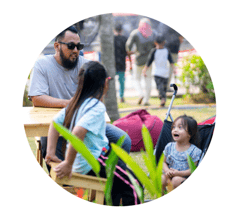 Bright Spots is a first-of-its-kind online resource library of child welfare practices reviewed and recommended by parents who have been impacted by the system.
Bright Spots is a first-of-its-kind online resource library of child welfare practices reviewed and recommended by parents who have been impacted by the system.
The Peer and Community Care model is a comprehensive, peer care network that can strengthen families while reducing contact with the family policing system. Rise envisions that training parents in impacted communities to intentionally build connections with their neighbors can reduce family stress and lead to healthier, thriving families.
Visit findbrightspots.org to learn more about this practice and how it can be implemented in your agency.